6 coronavirus health myths, fact checked (Re: CNET)
In the News

Despite what you see online, eating garlic and drinking water can’t protect you from getting infected.
For the most up-to-date news and information about the coronavirus pandemic, visit the WHO website.
There are several things we know that can protect people from getting or transmitting the novel coronavirus: Washing your hands with soap for 20 seconds frequently, cleaning surfaces in your home with disinfecting products and social isolation. But according to posts all over social media, there are many more ways to protect yourself.
Well before the coronavirus was named a pandemic by the WHO, people started sharing all sorts of questionable advice on how to protect yourself from getting infected, ranging from misguided (like making your own hand sanitizer) to outright dangerous. It’s reached the point where Facebook moved to ban any ads promoting fake coronavirus cures.
In an effort to get the facts straight, we are going to bust these common coronavirus myths that have taken over our feeds.
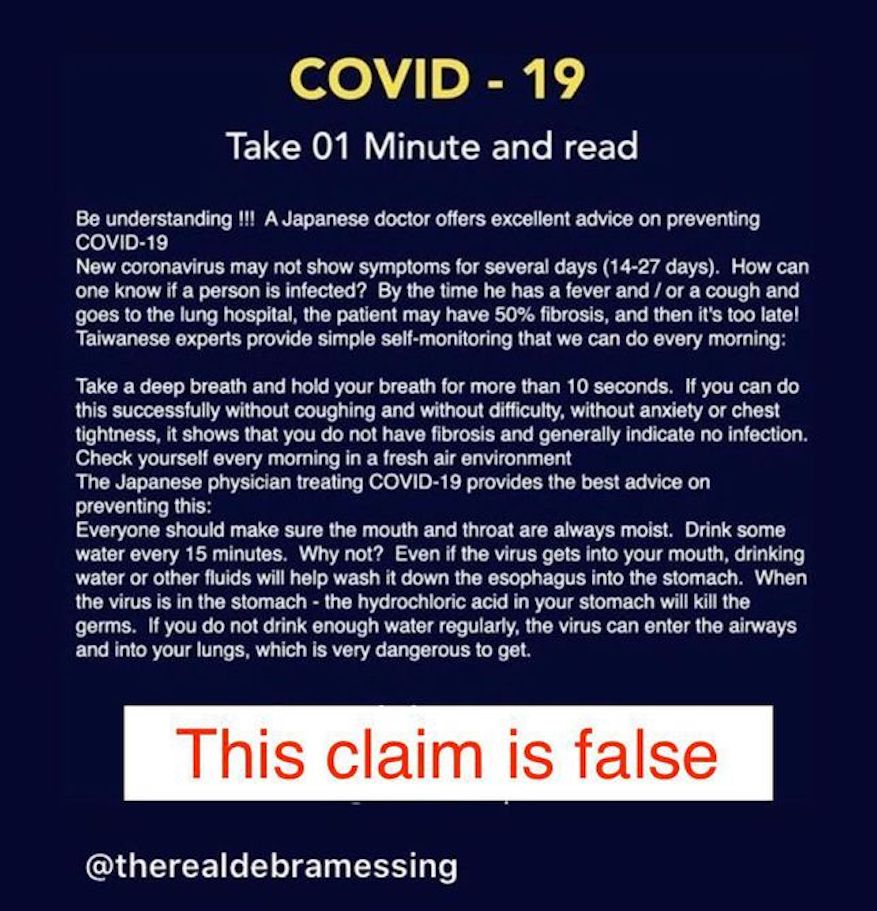
Myth 1: If you can hold your breath for 10 seconds, you don’t have a coronavirus infection
The idea behind this myth is that if some is infected with coronavirus, by the time someone is having trouble breathing, 50% of their lungs will have pulmonary fibrosis — a lung disease that causes irreversible scarring and hardening of the lung tissue.
There’s a post that’s been floating around the internet that states that if you can hold your breath for 10 seconds — without feeling like you need to gasp for air or a tightness in your chest — then you don’t have pulmonary fibrosis and you’re likely not infected with coronavirus.
This false myth has been shared all over social media, including by actress Debra Messing who posted it on a now-deleted Instagram story. There are even reports that the advice came from Stanford University, but that’s completely false according to the med school.
Truth: While it’s possible for the coronavirus to cause fibrosis, holding your breath is not a suitable at-home “test” to determine if you have lung damage. To get a proper diagnosis, you’d need a variety of tests performed by your doctor. And, if you’re having difficulty breathing, from coronavirus or anything else, you should call your healthcare provider.
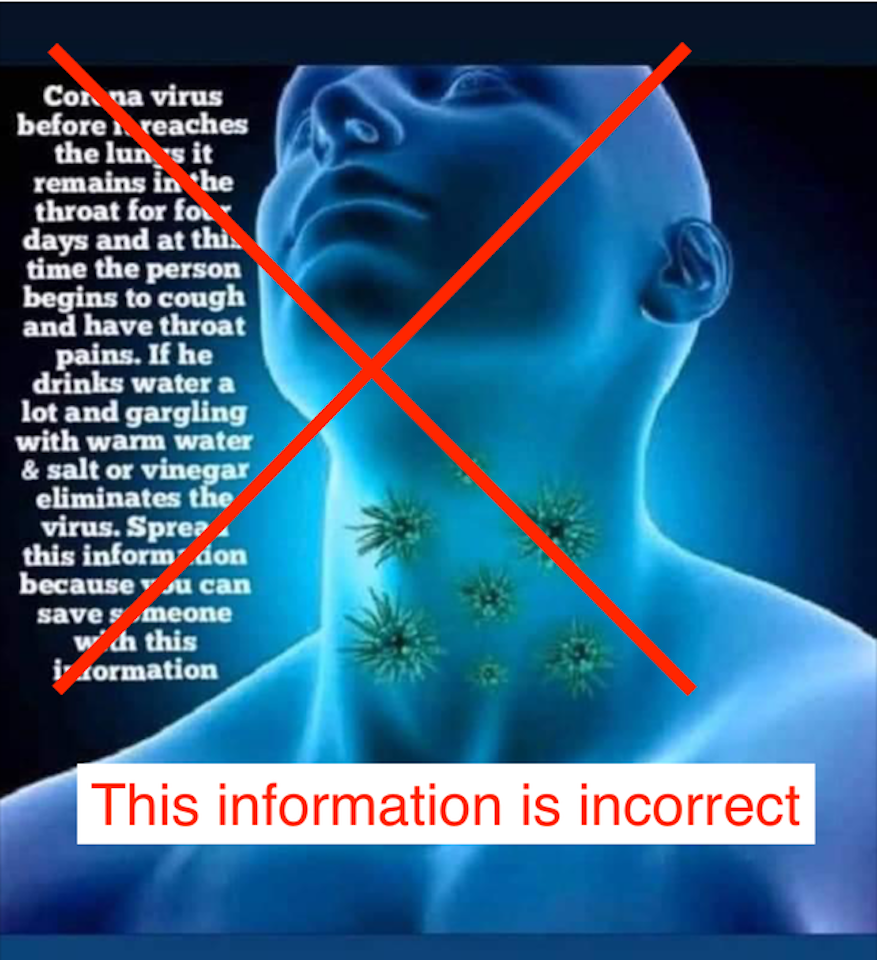
Myth 2: Drinking water will flush the virus from your mouth
The post mentioned above states that you should drink water every 15 minutes because even if the coronavirus gets into your mouth, water and other liquids can flush it away, into your stomach where it cannot survive because of your stomach acid. It goes on to say that if you don’t drink water often enough, the coronavirus will get into your airways and then into your lungs.
Another post (right) making the rounds on social media claims that you can “eliminate” the virus from your throat by gargling with warm water and salt or vinegar (the post doesn’t state what kind of vinegar).
Truth: It’s always smart to stay well hydrated, whether you’re sick or not. But, according to the WHO, there’s no evidence that drinking water can protect you from getting the coronavirus. Neither will gargling with salt water or vinegar. And in the same vein, flushing your nose with saline spray won’t protect you either.
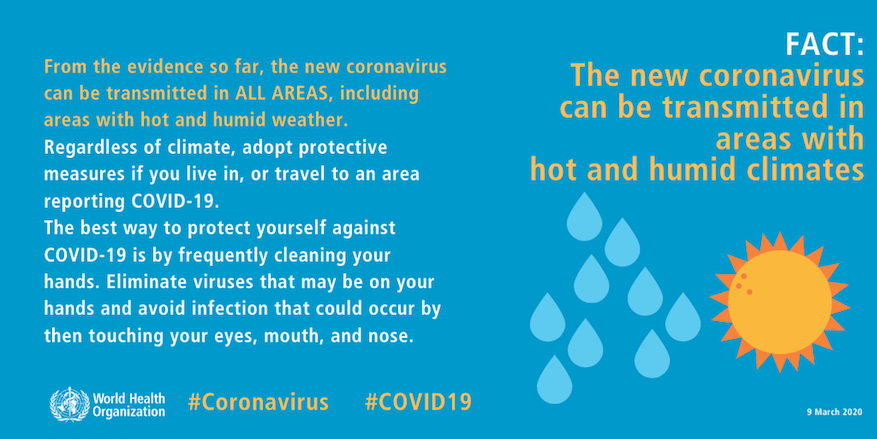
Myth 3: Warm weather will get rid of the coronavirus
At a rally on March 9, US President Trump told his supporters that the coronavirus will go away in April as the weather in the US gets warmer.
Last month, he was also quoted saying that the virus would be gone by April and that “the heat generally speaking kills this kind of virus,” referring to the idea that warmer weather will kill the virus and thus help minimize its spread.
Truth: According to the WHO, the coronavirus can be transmitted in all areas of the globe, including hot climates. It won’t just go away in the Northern hemisphere as the weather gets warmer in spring and summer. We also do not yet know if COVID-19 is a seasonal virus like influenza is.
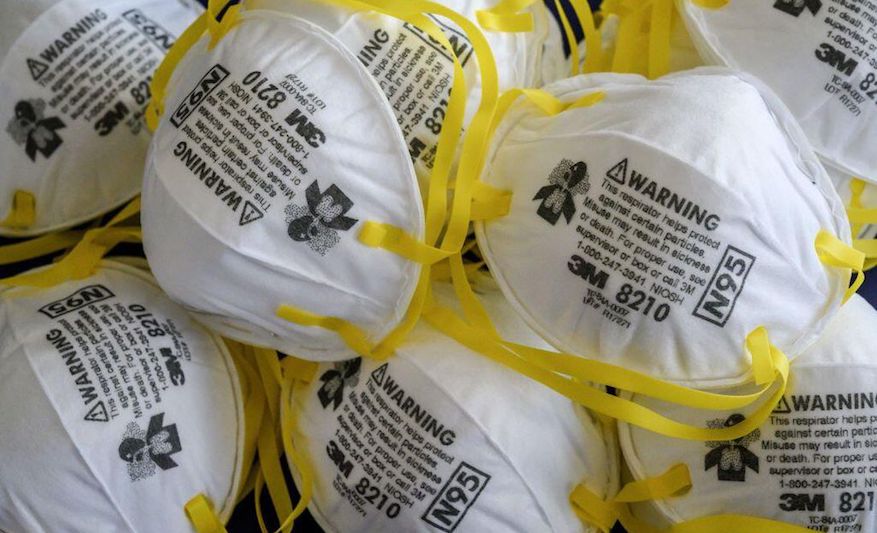
Myth 4: Using a face mask will protect you from getting the coronavirus
In the early days of the coronavirus outbreak, people ran out to buy surgical face masks. The idea was that these masks could prevent the virus from getting into your airways.
Truth: Surgical masks can’t block airborne viruses. They’re specifically designed to prevent fluids from someone else’s cough or sneeze getting into your mouth and nose, or prevent fluid from your coughs and sneezes from getting into someone else’s airways.
N95 respirator masks can block airborne viruses from getting into your mouth or trap viruses from your body to prevent them from spreading into the air — but you shouldn’t use one unless you think you’ve been infected by or are showing symptoms of the coronavirus and want to protect others from getting infected.
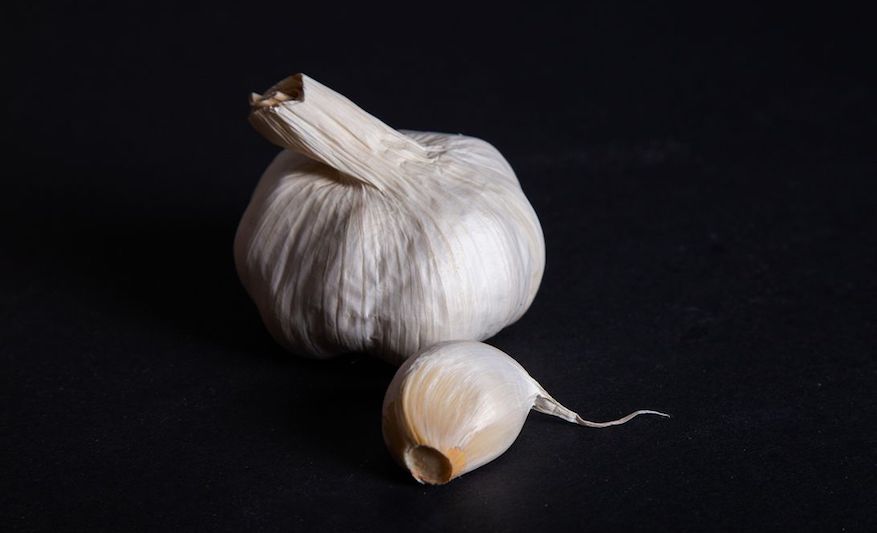
Myth 5: Garlic or herbs will cure or protect you from the coronavirus
Garlic is said to help boost your immune system and because of that, there have been rumors circulating online that it could also prevent a coronavirus infection. One post states that garlic is particularly helpful if you boil it and drink the water that’s left over.
Some posts on social media also claim that brewing tea from herbs (some suggest using sea moss) can protect kids from getting the coronavirus.
Truth: While garlic is good for your immune system, it can’t protect you from being infected with the coronavirus, according to the WHO. The same goes for DIY herbal tea.
Myth 6: Spraying alcohol or bleach on your body will protect you
As stores started to run out of hand sanitizer, people looked for other ways to protect themselves, including by spraying disinfectants on their bodies or clothes.
Truth: The WHO says that not only can spraying bleach or rubbing alcohol on your body harm your mucous membranes, it won’t protect you from getting the coronavirus. And you definitely shouldn’t drink rubbing alcohol or bleach to protect yourself — doing either can cause serious health problems and even death.
The information contained in this article is for educational and informational purposes only and is not intended as health or medical advice. Always consult a physician or other qualified health provider regarding any questions you may have about a medical condition or health objectives.
By: Sarah Mitroff
